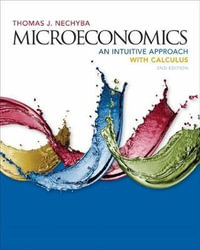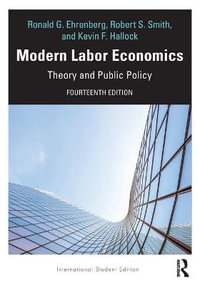In 1937, Ronald H. Coase published "The Nature of the Firm," a classic paper that raised fundamental questions about the concept of the firm in economic theory. Coase proposed that the comparative costs of organizing transactions through markets rather than within firms are the primary determinants of the size and scope of firms. Coase won the 1991 Nobel Prize in Economics for this work. This volume derives from a conference held in 1987 to commemorate the fiftieth anniversary of the publication of Coase's classic article. The first chapter affords an overview of the volume. It is followed by a republication of the 1937 article, and by the three lectures Coase presented at the conference. These lectures provide a lively and informative history of the origins and development of his thought. Subsequent chapters explore a wide-range of theoretical and empirical issues that have arisen in the transaction cost economic tradition. They illustrate the power of the transaction cost
approach to enhance understanding not only of business firms, but of problems of economic organization generally. In addition to Coase's work, contributors include Sherwin Rosen, Paul Joskow, Oliver Hart, Harold Demsetz, Scott Masten, Benjamin Klein, as well as the volume's editors, Oliver E. Williamson, and Sidney G. Winter. The Nature of the Firm includes Coase's acceptance speech for his Nobel Prize in Economics.
Industry Reviews
"Our advice to anyone interested in organizations and organization theory is don't miss this book. It includes some of the past, present, and future of a major line of thought regarding the nature of the firm. It is an important contribution to the expanding interest in organization theory."--Journal of Management
"Particularly timely given Coase's receipt of the 1991 Nobel Prize for economics....For students and noneconomists, the volume provides an accessible route into the now enormous literature on economic organization....Specialists, on the other hand, will find ample grist for their analytical mills."--Business History Review
"The evolution of the theory is interesting, several important issues are discussed, and the suggestions for future research are illuminating. For those not familiar with this literature, the book provides a clear exposition of its origins and key ideas."--Business History
"Many of the papers are exccellent. The book is accessible to advanced undergraduates and graduate students and valuable for specialists in the field. It is that rare conference volume which is interesting, enlightening, and important."--Journal of Economic Literature
"A lively debate on economic approaches to the firm....It is unlikely that there is a better book than this one for understanding what the economics mainstream and periphery have to say today on the organization and governance of the firm."--Administrative Science Quarterly
"Our advice to anyone interested in organizations and organization theory is don't miss this book. It includes some of the past, present, and future of a major line of thought regarding the nature of the firm. It is an important ontribution to the expanding interest in organization theory."--Journal of Management
"Particularly timely given Coase's receipt of the 1991 Nobel Prize for economics....For students and noneconomists, the volume provides an accessible route into the now enormous literature on economic organization....Specialists, on the other hand, will find ample grist for their analytical mills."--Business History Review
"The evolution of the theory is interesting, several important issues are discussed, and the suggestions for future research are illuminating. For those not familiar with this literature, the book provides a clear exposition of its origins and key ideas."--Business History
"Many of the papers are exccellent. The book is accessible to advanced undergraduates and graduate students and valuable for specialists in the field. It is that rare conference volume which is interesting, enlightening, and important."--Journal of Economic Literature
"A lively debate on economic approaches to the firm....It is unlikely that there is a better book than this one for understanding what the economics mainstream and periphery have to say today on the organization and governance of the firm."--Administrative Science Quarterly

























